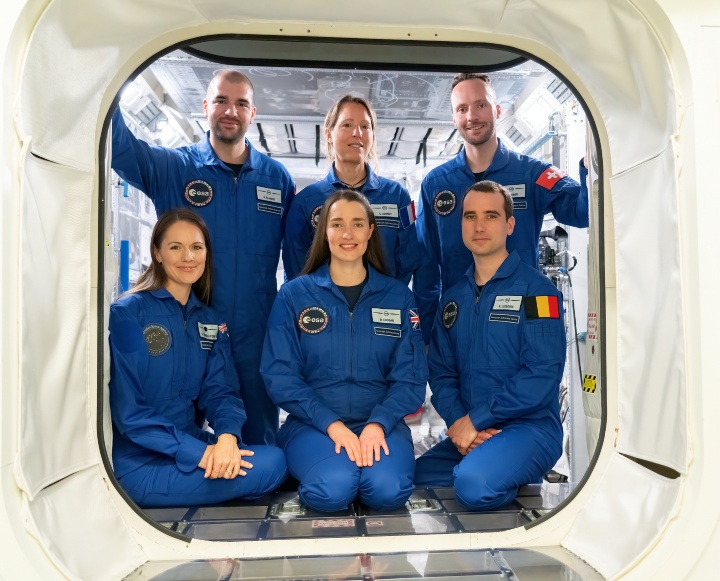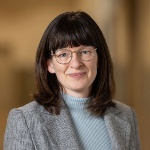Following a year of intensive training and study, the European Space Agency's (ESA) astronaut class of 2022 has successfully completed their basic training. The training comprised a variety of courses, including a course in space technology run by the Institute of Space Systems (IRS) at the University of Stuttgart.
Before being deployed on a specific mission, ESA aspiring astronauts must undergo “basic astronaut training”. During this one-year training program, they acquire an internationally recognized level of knowledge across various fields. The basic training consists of various courses, including a course in space technology. The Institute of Space Systems (IRS) at the University of Stuttgart conducted this course for the class of 2022 ESA aspiring astronauts. In late April 2024, the aspiring astronauts successfully completed their basic training during a ceremony at the European Astronaut Center (EAC) in Cologne. Two of the five participants, Sophie Adenot and Raphael Liégois, have already been assigned a specific flight mission.
“We are very proud to have once again contributed to the basic training of ESA astronauts,” says Prof. Stefanos Fasoulas, who previously delivered some of the foundational lectures for aspiring astronauts in 2009 and 2015.

Spaceflight and Aerospace Engineering Course: The fundamentals of aerospace engineering
The “Spaceflight and Aerospace Engineering Course” was held at ESA's European Astronaut Center (EAC) in Cologne by five IRS researchers. Between December 2023 and April 2024, the Stuttgart team held a total of twenty lectures, which were divided into five thematic blocks: Fundamentals of planning, operation and control of space missions; space environment; aerodynamics; spacecraft subsystems and flight dynamics; navigation and control. Each lecture had to undergo a trial run and receive ESA approval beforehand to ensure the highest level of compliance with basic training standards.
Interactive courses featuring lively discussions and dynamic exchanges
The aim of basic training is to give prospective astronauts, who all have different academic backgrounds, a basic understanding of space topics. “Accordingly, we have designed interactive courses with many opportunities for discussion and exchange,” says Dr. Constantin Traub, post-doctoral researcher at the IRS. “In addition, we have integrated some smaller math problems to deepen understanding. Special consideration was given to technical discussions with the astronauts. Due to their future working environment, they were naturally highly motivated to understand every aspect in detail.”
Spaceflight and Aerospace Engineering Course
The course in space technology for the ESA astronaut class of 2022 was held by a team from the Institute of Space Systems at the University of Stuttgart. The lecturers included Prof. Stefanos Fasoulas, Prof. Sabine Klinkner, Prof. Reinhold Ewald, postdoctoral researcher Dr. Constantin Traub and Prof. Gisela Detrell (former postdoctoral researcher at the IRS and now professor of manned space technology at the Technical University of Munich).
Contact

Lena Jauernig
Editor Research / Early Career Researchers


